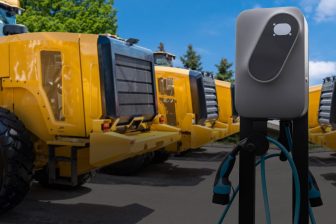EC approves acquisition Thales and Finmeccanica
IP/07/477
Mergers: Commission approves acquisition by Thales and Finmeccanica of joint control of two space joint ventures Alcatel Alenia Space and Telespazio
Brussels, Belgium – The European Commission has cleared under the EU Merger Regulation the proposed acquisition by Thales of France of Alcatel’s shareholdings in the space joint ventures Alcatel Alenia Space (AAS) of France and Telespazio of Italy, currently jointly controlled by Alcatel and Finmeccanica. Thales holds a leading position for Travelling Wave Tubes (TWTs), a critical component for telecommunications satellites. AAS is a leading satellite manufacturer. In November 2006, the Commission opened an in-depth investigation (see IP/06/1645) to determine whether the new entity would be likely to restrict access to TWTs for its downstream satellite and satellite subsystem rivals. The Commission’s investigation in fact found that the new entity’s ability and incentive to do so would be very limited and significantly constrained by both competitors and customers. As a result, the Commission concluded that the concentration would not significantly impede effective competition within the European Economic Area (EEA) or a significant part of it.
Competition Commissioner Neelie Kroes commented: “This merger creates a complex vertical structure in an industry involving highly technical products but the Commission has investigated it thoroughly and is satisfied that the existing strong competition on the markets for telecommunications satellites and subsystems will not be adversely affected.”
Thales is active in the development and integration of critical information systems for the defence, aeronautics and transport industries and for civil security. Thales is jointly-controlled by the French State and Alcatel.
Finmeccanica is a diversified engineering group active in aerospace, defence systems, energy, communications, transportation and automation.
AAS is active in the manufacture of ground and space systems, including satellites and subsystems and equipment for satellites.
Telespazio provides services and end-user applications using or related to satellite-based solutions and products.
Through the proposed transaction, Thales would acquire Alcatel’s 67% shareholding in AAS and its 33% shareholding in Telespazio.
Thales is not active in satellite prime-manufacturing but Thales Electron Devices (TED), a subsidiary of Thales, is the leading producer of TWTs, a component used to amplify microwave signals received by satellites before being retransmitted to earth. The electronic component that supplies power to the TWT (Electronic Power Conditioner or EPC) together with the TWT itself form the integrated Travelling Wave Tube Amplifier (or TWTA), an amplifier on telecommunications satellites.
TWTs and TWTAs are a crucial component of telecommunications satellites, as they determine the performance of the satellite. There are only two suppliers of TWTs worldwide, TED and the U.S. company L3-ETI. The two leading suppliers of TWTAs worldwide are L3-ETI and Tesat, a subsidiary of Astrium (EADS group). Telecommunications satellites, TWTs and TWTAs are purchased in open competitions. All the markets are worldwide.
The Commission’s initial investigation had indicated that the combination of Thales’ activities in TWTs and AAS’ activities as a satellite manufacturer could lead to competition problems. The Commission opened an in-depth investigation to examine whether the new entity would have the ability and the incentive to discriminate against its downstream competitors in the supply of TWTs so as to favour its own TWTA and satellite prime contracting activities.
As regards the TWTA market, the Commission found that the new entity would have a limited position as a supplier of EPCs, the other component of TWTAs. AAS produces EPCs but its range is very limited. In particular, AAS does not produce dual EPCs able to power two TWTs, which offer significant advantages in terms of cost and mass, and it would take several years before AAS would be regarded as an established dual EPC supplier. The demand for dual EPCs currently represents 50% and is expected to increase further. The Commission also found that L3-ETI, a leading TWTA supplier, is a credible competitor for the TWT frequencies that represent the bulk of the demand. In addition, if the new entity were to establish itself on the market for TWTAs, this would increase competition from two to three suppliers.
As regards the market for commercial telecommunications satellites, the Commission found that, for the vast majority of recent satellite orders, satellite manufacturers now buy TWTAs from Tesat or L3, rather than purchasing TWTs and EPCs separately. This suggests that a foreclosure strategy based on direct supply of TWTs would not be effective at the satellite level. In addition, the Commission conducted a detailed analysis of the types of TWTs and EPCs currently used and of satellite operators’ preferences, which showed that the new entity would have neither the ability nor the incentive to foreclose the satellite market.
More information on the case will be available at: http://ec.europa.eu/comm/competition/mergers/cases/index/m88.html#m_4403
Additional background information (provided by Infrasite’s Editorial Staff)
Transfer of Alcatel-Lucent assets to Thales (2006-12-04)
U las zojuist één van de gratis premium artikelen
Onbeperkt lezen? Profiteer nu van de introductieaanbieding voor € 10,- per maand.
Bent u al abonnee?



